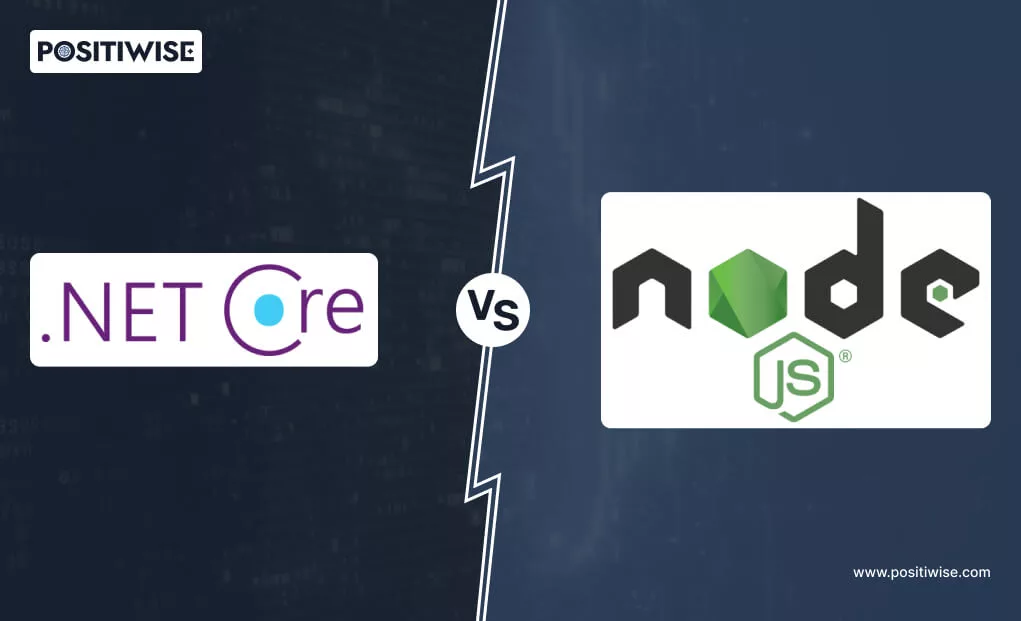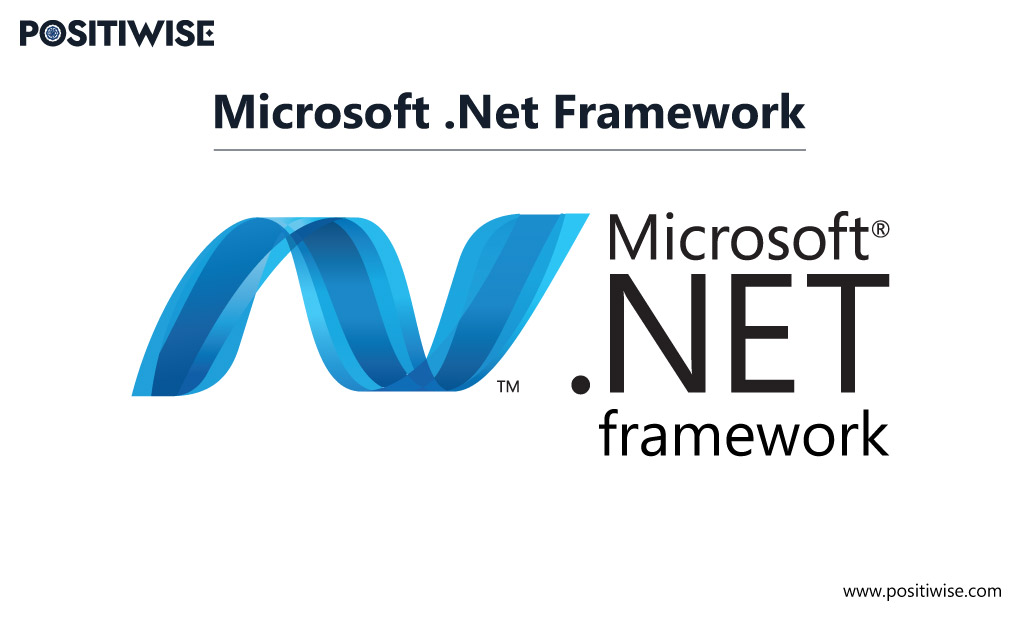Quick Overview:
Many programming languages, frameworks, and platforms have created a versatile business solution. However, business owners and development teams often face confusion when selecting a relevant technology for their software project. In such cases, they primarily appraise .NET Core and NodeJS due to factors like limited budget, shorter time-to-market, and specific requirements.
But, now the question occurs, which one to choose? To clarify all your doubts, read further, and you will be able to select an appropriate platform to craft robust software precisely.
A Run-Through: .NET Core vs Node.js
.NET Core
Microsoft freely distributes the open-source .NET Core and ASP.NET software development frameworks under an open-source license. Microsoft created and maintained it with support from a large community of IT professionals around the globe. It is a cross-platform compatible technology that is preferred for furnishing web-based, mobile, desktop, and IoT applications integrated with Cloud services.
Pros of using .NET Core
- Several free and paid tools are effortlessly accessible for writing clean code and debugging it to optimize its performance.
- Creating an enterprise-grade solution becomes cost-efficient as it requires less coding, automatically reducing the effort and budget.
- The overall solution fabricates flawlessly as it flawlessly fabricates and links both the front and back ends.
- Platform platform-independent structure of .NET enables the developer to run it on microservices and distributed server architecture.
- To extend the features and functionalities of the business solution, you can utilize C#, F#, and Visual Basic.
Node.js
Node.JS is a JavaScript-based framework for building a reliable back-end for applications with immersive data load. It follows a non-blocking and event-driven approach to process each request received from the client in minimal time.
It receives support from all major operating systems, including Windows, Linux, and macOS, and can effortlessly transform JavaScript code into machine language. Therefore, developers consider it for constructing Web Services, Web APIs, Web applications, scripts, and real-time data-driven solutions.
Pros of using Node.JS
- NodeJS supports microservices, enabling rapid scaling with rapidly changing enterprise requirements.
- It leverages to benefit from its load balancing feature to impeccably handle a large number of processes simultaneously and provide accurate output.
- It helps to minimize the development cost, as developers can perform Full-stack development with it.
- The single-threaded event-loop mechanism boosts performance and response time.
- By default, modules for HTTP, DNS, and JSON are present in the installation package to ease the data flow between the server and the client machine.
Recommended: Node.js vs ASP.NET?
A Deep Dive into .NET Core vs. Node.js
ASP.NET vs Node.JS are the leading technologies in the software development domain; however, knowing the price difference between them is essential to build a quality product. To help you find a suitable technology to craft your business application, compare ASP.NET vs. Node JS on the following aspects to understand their differences.
Processing Approach and Performance
The user request execution model is crucial in every application, as it plays a vital role in optimizing the speed and minimizing the time to provide acknowledgment. NodeJS follows the asynchronous approach, enabling the software to handle multiple instructions by dividing a single thread into multiple virtual threads. The single-threaded event-loop mechanism effortlessly handles extensive load on the app and smoothly executes all operations.
In addition, .NET Core Development is also based on the same approach, and all the input-output operations are processed simultaneously. Compared to NodeJS, .NET Core is faster due to separate threads available for each user request rather than creating the virtual ones in the background.
Security
Providing a secure environment for completing their tasks is a priority of every organization. From a cyber-security viewpoint, .NET Core is considered more secure due to its integrated Authorization, Authentication, HTTPS enforcement, and much more. Moreover, one can define security guidelines and protocols according to business requirements, and it assures to defend the app against XSS, SQL injection, and other potential cyber-attacks.
On the other hand, Node JS development has some incorporated security mechanisms, such as automatic vulnerability checking, logging, and monitoring, but requires third-party APIs to successfully and reliably configure them. Creating loopholes in the app can increase the risk of a data breach.
Scalability
With evolving business demands, creating a scalable application is one of the priorities. Both NodeJS and .NET Core are capable of seamlessly running on microservices architecture. Both these frameworks perfectly fit the application to run on distributed systems. It enhances the Node JS vs .NET performance, making the business solutions more lightweight and utilizing only the appropriate processing power.
Organizations such as Netflix, eBay, and Uber highly prefer these technologies and are currently running their software based on them.
Platform Adaptability
Regardless of saving software development cost and time, cross-platform applications also aid in reaching out to the targeted audience. Node JS or .NET-based business solutions are competent to run on many machines with any operating system, whether Windows, Linux, FreeBSD, IBM AIX, or macOS.
Further, if you select the .NET Core version introduced before 2018, your application will run solely on the Windows operating system. So, it is essential to use the latest and updated framework version.
Support from Community
Having ample community support is always an advantage, as pre-developed codebases and templates are readily available to reduce the effort. Furthermore, .NET Core has a larger community than NodeJS, which extensively helps developers implement advanced techs, such as Artificial Intelligence, Machine Learning, Payment gateways, and much more in the application. Moreover, more than 3.5 million registered users in the .NET community.
Comparison Table between .NET Core and Node.js
| Feature | .NET Core | Node.js |
|---|---|---|
| Language | C#, F# | JavaScript |
| Release Date | 2016 | 2009 |
| License | Open source (MIT) | Open source (MIT) |
| Platform | Cross-platform | Cross-platform |
| Primary Focus | General purpose application development | Asynchronous event-driven framework for scalable web applications |
| Performance | Compiled code performs faster | General-purpose application development |
| Scalability | Handles multi-threaded applications well | Asynchronous model ideal for I/O bound apps with concurrent users |
| Package Manager | NuGet | npm |
| Frameworks | .NET Core, .NET Framework, Xamarin | Express.js, Sails.js, Meteor.js |
| IDEs | Visual Studio, VS Code | WebStorm, Atom, Brackets |
| Databases | SQL Server, PostgreSQL, MySQL, Redis | MySQL, MongoDB, CouchDB |
| Caching | In-memory, Redis | Redis, Memcached |
| Client-side | Blazor, Razor | React, Angular, Vue |
| Mobile Apps | Xamarin | React Native |
| ML Capabilities | ML.NET | TensorFlow.js |
Develop .NET Web Application with ASP.NET Technologies
Bring your web app ideas to ASP.NET development experts. Hire our skilled .NET developers to build secure, scalable web & desktop web applications.

Wrapping Up on .NET Core vs Node.js
When developing business applications, both .NET Core and Node.js have their strengths, but .NET Core’s performance makes it better suited for large, complex solutions. With its event-driven architecture, Node.js is great for lightweight web apps, while .NET Core excels at desktop and mobile apps. The key is analyzing your requirements – Hire .NET Core Developers if you need a robust enterprise application, but use Node.js if you want a simple, scalable web app. By matching the technology to your business needs, you can build well-structured software that both performs well and delivers the right functionality.
Expert in Marketing Strategy and Brand Recognition
Jemin Desai is Chief Marketing Officer at Positiwise Software Pvt Ltd, he is responsible for creating and accelerating the company’s marketing strategy and brand recognition across the globe. He has more than 20 years of experience in senior marketing roles at the Inc. 5000 Fastest-Growing Private Companies.






